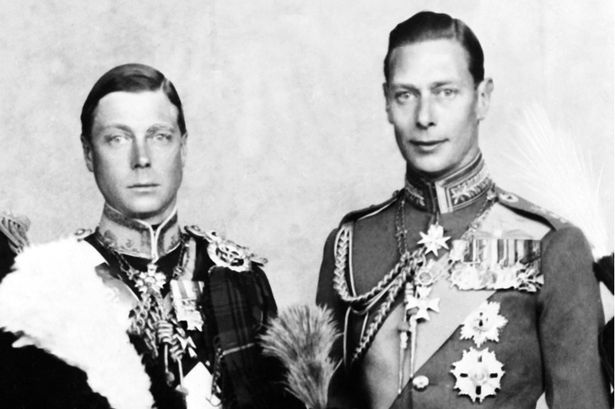When they were still royal princes, future kings George VI and Edward VIII wrote letters describing their regrets about not being able to fight in the First World War. These letters detail the reasons they were not allowed to join the fray, and indicate the extent to which they felt it should have been their duty to fight. A collection of such letters, including writings by both royal princes, was sold at auction at the beginning of October.
Each of the future kings had their own reasons for not being able to fight. George VI, the younger of the two, was unable to serve due to health problems. He had been experiencing gastric problems, although he was worried that some might blame his speech impediment rather than his health defects. The older of the royal princes, Edward VIII, was physically able to fight but was barred from serving in the war due to his position as direct heir to the throne. As such, he felt left out of one of the most important wars in history. He expressed great envy for the men who were able to serve, claiming himself to be “devoid of any job.”
These letters date from as early as 1912 to as late as 1932. They were addressed to Admiral Sir William Campbell Tait. In their letters to Tait, who fulfilled the role of mentor to both of the royal princes, George and Edward express a genuine respect. Edward even claims that he regrets troubling Tait with such personal matters during wartime, but feels that Tait is a man to whom he is able to express his feelings.
Admiral Tait’s family collected these letters in hardbound form, with many of them restored to ensure quality. On the 2nd of October, they were put up for auction at Martel Maides in Guernsey. The letters of the royal princes were given an estimated price of £45,000. Not all of these letters focus on the young men’s regrets over their absence from the battlefield. Some are about other matters, such as Oxford’s Bullingdon Club. The collection even includes a Christmas card signed by George VI, the Mail Online reports.
According to Martel Maides’ James Bridges, this collection of letters by the royal princes is a rarity for more than simply the men who wrote them. Writing letters is no longer a particularly common practice, and it is difficult to find such a collection written by important figures of today. Not only does this collection provide some insight into the minds of two royal princes, but it also provides a glimpse at the manner in which communication has changed greatly over the past century.
